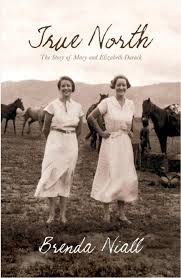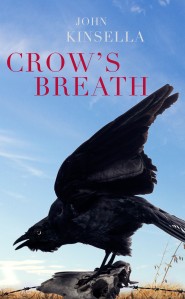
The Price of Valour by John Hamilton (Pan MacMillan, 2012)
Hugo Throssell is a fascinating, tragic figure, well deserving of his own biography apart from his role as husband to one of Western Australia’s most important writers, Katharine Susannah Prichard. Indeed, they met in London during WW1 as two Australian celebrities in their respective fields. (The photo here is not of Prichard, but Throssell with an unidentified nurse.) Throssell was a war hero, Victoria Cross winner and son of a prominent conservative politician. The tension between this and his marriage to a communist writer is part of what drives this biography by John Hamilton.
Hamilton is a journalist by background, and has written two other books about World War I. He approaches Throssell as a military historian; in telling the story of Throssell’s life, it is the trench battles in World War I which receive the most attention. This is appropriate, because it is Throssell’s role as a war hero which made him famous, and the trauma of battle which would contribute greatly to his suicide in 1933.
Hamilton’s research is the greatest achievement of this book. He managed to track down the only (then) living person who could remember Throssell well, a niece who died at nearly 95 a year before the book was published. He finds official records which shed much light on so many aspects of Throssell’s life – not just his military service, but even a note from the Northam RSL requesting that the premier remove Throssell from his role as the soldier’s representative on the Soldiers Settlement Scheme (303).
It’s always an achievement in biography to revivify long lost events in ways that go beyond the bare official record, but don’t seem indulgent. One scene which comes vividly to life in this case is the description of the infamous event at Northam on Peace Day, 19 July 1919, when Throssell declared that the war had made him a socialist (286). ‘The crowd’s warmth toward the speaker gave way to a frozen, disbelieving silence.’
I was going to write that a second example was that of the grand opening of Throssell’s rodeo (330), which helped ruin him financially – but looking back, it is a lengthy quote from the local paper, The Swan Express, which brought it to life for me. It’s a device Hamilton uses often through the book, and I’m not sure what to make of it. The extended quotes are well chosen, and present the events in the language and outlook of the day, which is surely valuable. Yet is it ‘good’ method in a biography? I imagine it might be disallowed in a more academic biography. (On that note, although providing a thorough and helpful bibliography, Hamilton does not properly reference the quotes; another case of a convention of popular biography vs academic biography.)
Writing in The Canberra Times, reviewer Michael McKernan argues that the division of the book into ‘triumph’ (in World War I) and ‘tragedy’ (in his marriage) is an incorrect one – the war experiences were part of the tragedy, setting up what was to follow. Hamilton may not disagree – as a military historian he seems very aware of the cruelty and tragedy of war – but in another important sense, perhaps McKernan’s comment reveals fundamentally different ways of looking at the meaning of war.
For me, there are important underexplored questions in the account of Throssell’s tragedy. To what extent did his speech at Northam make him a pariah? His job with the soldier’s settlement scheme continued until 1930. Were the objections to his rodeo scheme related to his politics? The question may be unanswerable, and Hamilton has at least provided some good evidence. Another question – what was Throssell’s politics, and how did it relate to his entrepreneurial activities as a land developer, gold miner, and rodeo promoter? And what was the state of Katharine and Hugo’s marriage when she left on her extended trip, going to stay for a time with her ex-lover and his new partner in Russia? Again, probably unanswerable, and I may be wrong to ask for further speculation than Hamilton provides.



